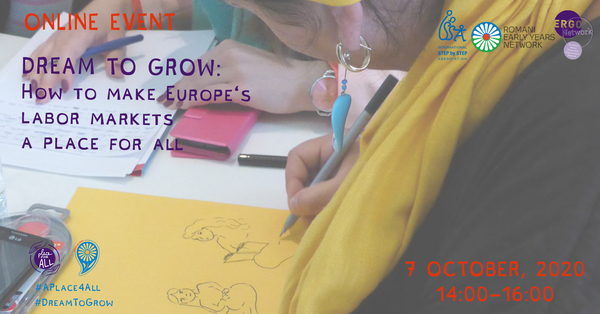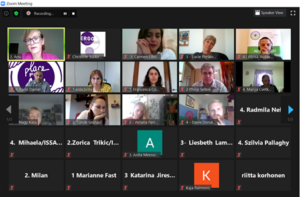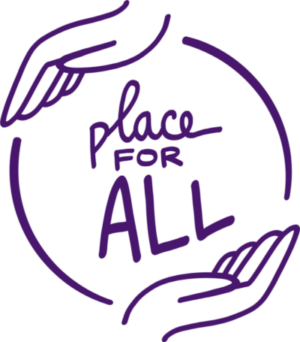European Commission releases proposal for Joint Employment Report 2021 – What’s in it for Europe’s Roma?
On 18 November 2020, the European Commission published the draft Joint Employment Report, published this year separately from the Annual Sustainable Growth Strategy (ASGS), which was released in September (see ERGO Network’s reaction to it here).
This year’s disconnect between the ASGS and the draft Joint Employment Report means that the former was not underpinned by the latter, and that Europe’s priorities for a green, digital, sustainable and inclusive recovery were not guided by in the in-depth analysis of realities on the ground that the Report provides. The structure of the Joint Employment Report does not appear to have changed (as it was the case for the ASGS), as it continues to track Member State performance in the areas covered by the Employment Guidelines and by the Social Scoreboard of the European Pillar of Social Rights. The impact on the pandemic on the employment and social situation in Member States is equally included in detail throughout the Report, as well as the national measures aimed at mitigating it.
ERGO Network warmly welcomes the multiple explicit references to the European Roma in the draft Joint Employment Report, but laments that, once again, they are exclusively mentioned in relation to education (pages 61, 88, and 107). The Report highlights that “Roma inclusion in education is a challenge that could become more prominent as a result of the COVID-19 crisis”, that “Effective enforcement of legislative changes for Roma inclusion in mainstream education remains important”, and that “The NEET rate of Roma is much higher than that of the general population.” Travellers are also named once in the document, in the same section.
The focus on improving Roma access to quality and inclusive mainstream education is very welcome, particularly as it also refers to obstacles such as severe poverty and housing exclusion. ERGO Network shares the concerns related to the impact of the coronavirus pandemic, which has seen a large number of Roma children deprived of the possibility to access online education, which only contributes to widening the gap with the general population. The digital divide is equally mentioned, in what concerns lack of access to infrastructure (internet coverage, electricity), equipment (PC, tablets etc) and knowledge (digital skills).
While the importance of affirmative action is recognized as a useful approach for ensuring equal opportunities, the Report takes a strong stance against segregation, calling for active measures to prevent it, as well as additional financial and professional support. Measures include educational mediators, scholarships, after school activities, language courses, free public transport, access to early childhood education and care, setting up antisegregation working groups, combatting the placing of Roma children in special needs classes or schools. These are very positive steps, already recorded in a number of countries, very much in line with ERGO Network’s own position and recommendations on quality, inclusive, and desegregated education.
Despite the very positive content on combatting school segregation and improving Roma educational attainment and completion, all the above measures are one sided and refer exclusively to educational establishments, while no mention is made of wrap-around support for families, access to adequate income, support towards quality jobs, decent housing, other services. This is despite the Report’s own admission that “In all Member States, the poverty risk for children raised by a single parent or in families with more than 3 children or with a migrant or Roma background is two to three times higher than that of other children.”
Tackling structural problems like persistent poverty or rampant discrimination, does not seem to be a concern, nor is proposing an integrated approach to the multiple difficulties faced by Roma citizens in Europe. The EU Strategic Framework for Roma Equality, Inclusion, and Participation is not mentioned anywhere in the text, nor is its predecessor. The Report completely overlooks the fact that the Roma are overrepresented in unemployment and poverty rates and face significant obstacles in accessing adequate social protection and key services, such as affordable housing, or quality health- and long-term care, including childcare. The Report also contains no reference to the situation of ethnic minorities or combatting antigypsyism and racism.
Encouragingly, the Joint Employment Report contains a full paragraph supporting the participation and direct engagement of beneficiaries and their civil society organisations in the design and implementation of policies that concern them (page 122), which is also stipulated in Guideline 7 of the Employment Guidelines.
ERGO Network hopes that the new decade will bring closer alignment between the EU Roma Strategic Framework and the European Semester, in full synergy with delivery on the of the Sustainable Development Goals and the European Pillar of Social Rights, to ensure that Europe’s Roma are not left behind, particularly in the context of the Covid-19 pandemic and recovery.













 The Council of the EU adopts a recommendation for more inclusive measures to boost youth employment by reinforcing the Youth Guarantee – Will Roma youth be included?!
The Council of the EU adopts a recommendation for more inclusive measures to boost youth employment by reinforcing the Youth Guarantee – Will Roma youth be included?!